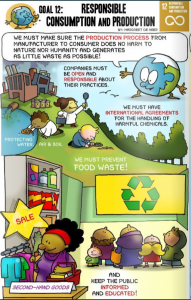Year 6: Electronic Waste (e-waste)
Mining
The metals that are found in electronic devices such as copper, nickel, aluminium, gold and silver need to be extracted from the Earth. However, mining for these precious metals often leads to deforestation, noise pollution, erosion and water contamination. Subsequently, landscapes may be permanently scarred, habitats may be harmed and wildlife threatened.
In the clip below, we learn about the impact gold mining in Ghana (Africa’s largest gold producer) has had on the environment.
Prediction
In the clip, we learn that mining for gold in Ghana has polluted many rivers and streams. What impact do you think this has had on the people that live near these water bodies?
Observation
In the clip we learn that the metal mercury is used to extract gold from rocks and sediments. This is because of its magnetic properties.
Enquiring Mind Questions
- Why does illegal gold mining take place in Ghana?
- Do companies that make and sell electronic devices know about the environmental impacts of mining for metals and, if so, what are they doing about it?

Natural Curriculum's Good News Story
We have learnt that the technology exists to extract and recycle the metals that are within our electronic devices. In the BBC News clip opposite, we discover that a metal called indium is used in the touch screens of smart phones due to its special properties. Once extracted, the indium can be reused to help make solar panels.
Look closely at the poster below.
How does recycling e-waste and extracting metals such as gold and indium help this sustainable development goal?
but what happens to them when they stop working or a better model comes along? If these devices are dumped into landfill sites, the metals within their circuits (such as lead and mercury) can get into the soil and water supply. This e-waste can cause harm to people, animals and plants. Furthermore, electronic devices often have precious non-renewable metals within their electrical components. If the devices are not recycled, then the precious metals go to waste.
In this fascinating clip, we discover that the Royal Mint (the organisation responsible for producing all of the UK’s coins) has discovered a way to remove the precious metals from the circuits of electronic waste so that they can be reused.
Discuss the meaning of each word highlighted in bold.
Sustainable Development Goal - Responsible Consumption & Production


 Sign in
Sign in

